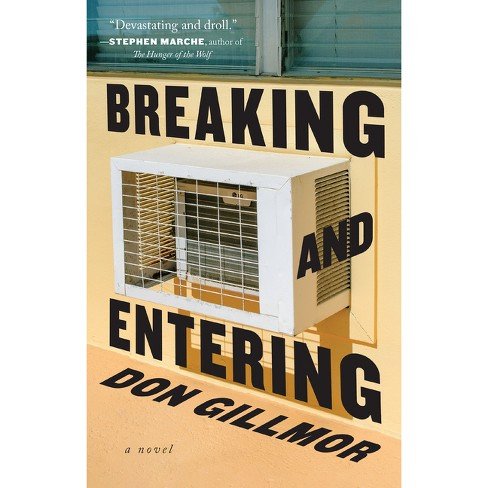“Thrilling and relatable.”
“One of the things that makes a work of literary fiction appealing is its ability to speak to some bit of the human condition. Maybe profound, maybe mundane. But it gets to you. Not every book can do that. Breaking and Entering is a fitting book for the moment in which we are living.”
“Within a few pages, Bea establishes herself as a powerfully drawn character. Readers will find themselves compelled to continue reading, to spend time in her world. Every aspect of the novel feels true. That balance, between critical distance and emotional immersion, lends the novel a powerful verisimilitude.”
“Devastating and droll.”
“Breaking and Entering is a red-hot novel, sweaty and sexy, that pulls off a complex three-way analogy between the unsustainability of intimacy, our increasingly unlivable and volatile climate, and the coy seduction of caressing a lock until it eases open. Unsurprisingly, Bea’s perverse thrill at being an invisible intruder slides into voyeurism, creating an amusing interplay where she, the readers, and the author are all complicit in the desire to probe into the lives of strangers.”
In the midst of the hottest summer on record, a woman tests the increasing tension between our social contracts and our selves.At 49, Beatrice Billings is rudderless. Her marriage is stale, her relationship with her son Thomas is limited to text messages–hostile haikus that he sends from university–and she is the primary caregiver for her mother, who is in the early stages of dementia. She has a complicated relationship with her older sister Ariel, with whom she carries on ongoing arguments in her head. Bea laments the loss of momentum she remembers feeling in her thirties, when she and everyone she knew was busy buying houses, having children, and renovating kitchens. Now she is reflecting on her life, worried about her inability to memorize a simple yoga sequence, and about the fact that she enjoys the idea of many things more than the actual things themselves (teaching, reading, sex). When Bea finds that she has both a talent and a passion for picking locks, the sense of anticipation that had been missing from her life returns. Breaking into other people’s houses is something she’s good at: she is a quick study, subtle, discreet, and never greedy. It’s a dangerous hobby that makes her feel alive–and so she begins the guilty analysis of other people’s lives, and eventually, her own.
